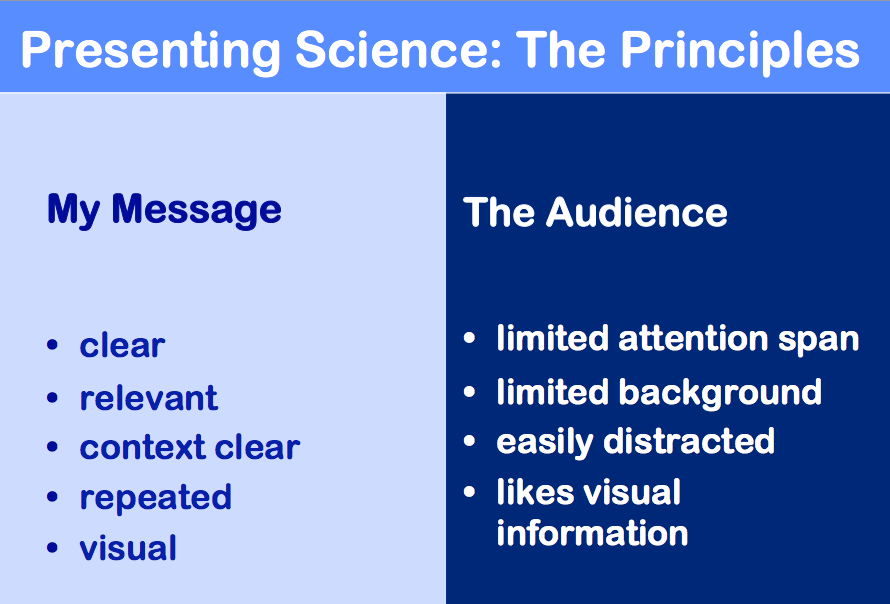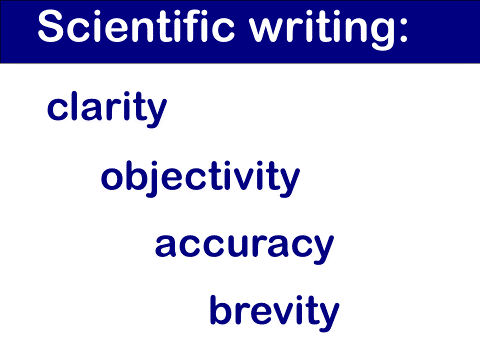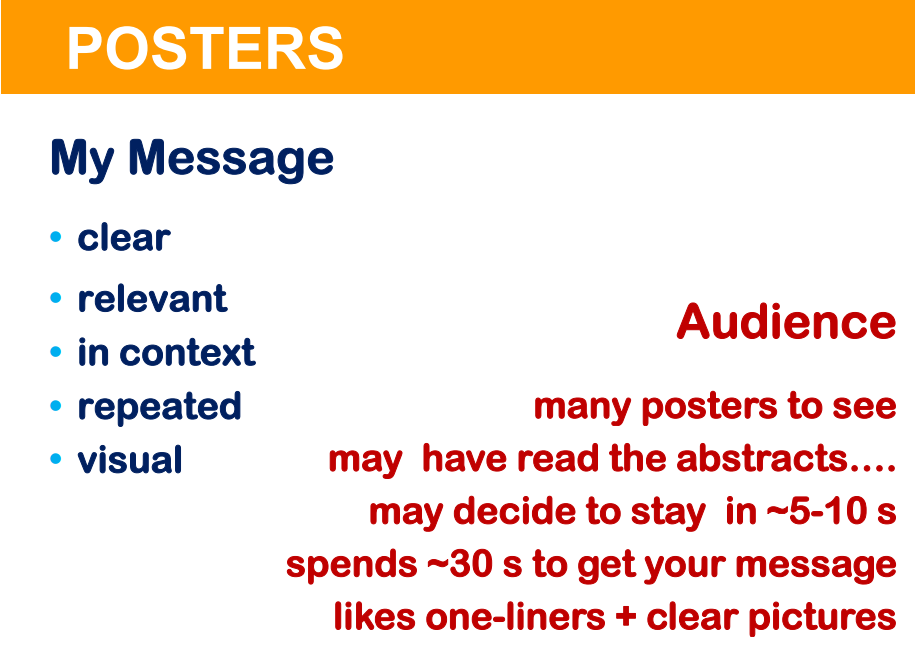Presenting Science: Introduction
a clear message for a specific audience
When using PowerPoint slides, or when explaining a poster, written and spoken words together form the basis of the presented material. But there are many more elements of the presentation, think about intonation, body language, the way you respond to questions. All this constitutes your side of the presentation, and it will be most successful if your presentation, report, application, is centered around a crystal clear message that cannot be misunderstood.
The second factor is the audience. Who are these people that are listening to you or are reading your texts? What is their background? How do they listen or read? How much time and effort are they willing to invest to get your point? How easily will their attention be distracted? What causes their distraction? Is it you? Are there external causes like construction activities in the next class room, telephones ringing in the audience, or a deficient sound system?
Hence, analyzing your audience or readership is very important, so that you can target your message at the right level. At the same time you should do everything to make your message as clear as possible, and to present it as clearly as possible.
Our philosophy about presenting science is very simple:
1) feel free to develop your own style that fits you,
2) ensure that you avoid the obvious mistakes
that speakers and authors so frequently make,
3) always build your speech, report, article or poster
arounde a crystal clear message.
We publish here comprehensive contributions on Oral Presentations, Writing Articles, and Presenting Posters.
Success!!



